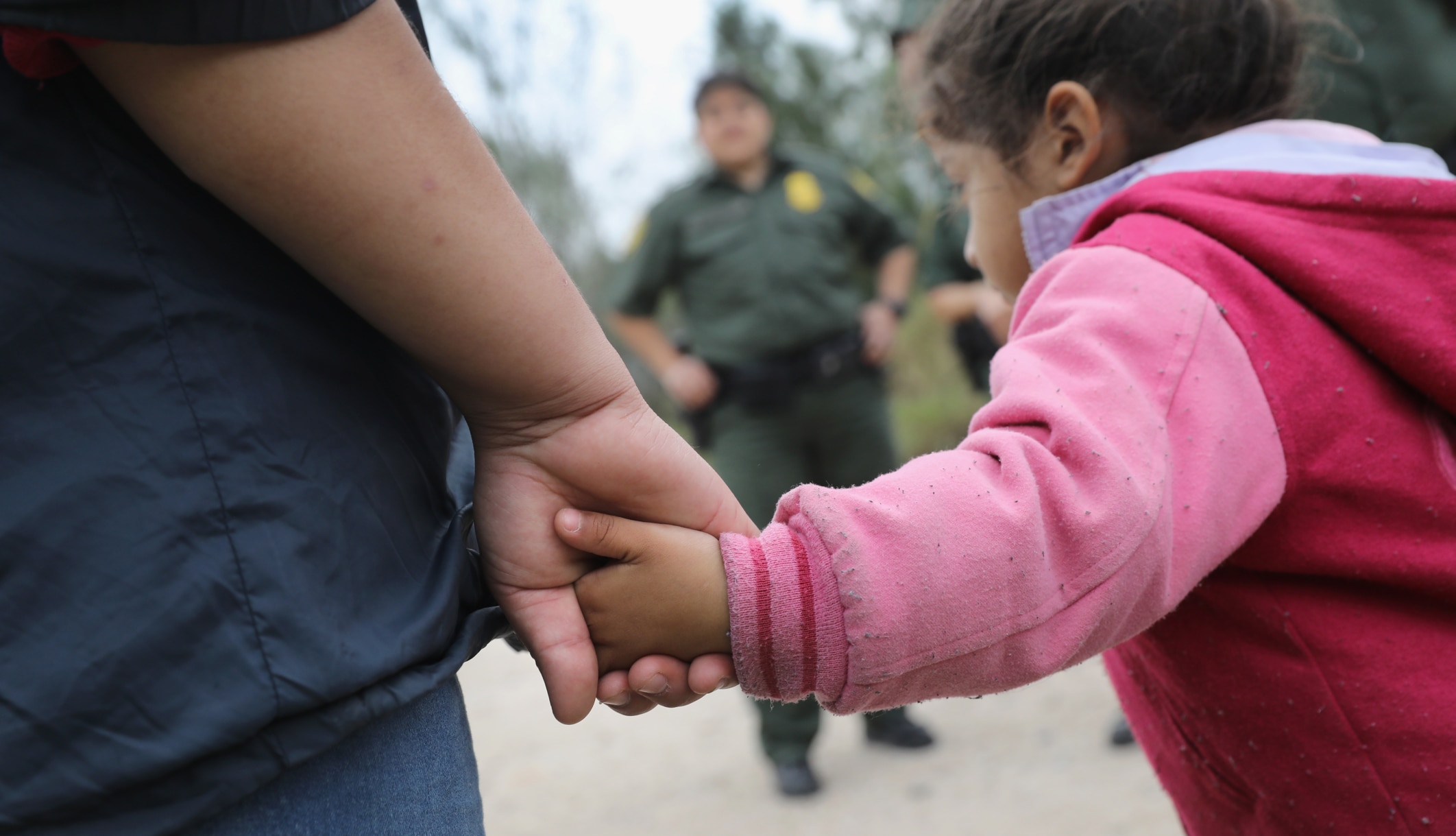Create a free profile to get unlimited access to exclusive videos, breaking news, sweepstakes, and more!
1,500 Migrant Kids Not Actually Lost — Just Not Reachable, Say Officials
Did the government really lose track of nearly 1,500 migrant children? Here’s why some are saying earlier reports might not be reflective of reality.

Reports of missing migrant children may have been greatly exaggerated, or at least misconstrued.
Following numerous reports that nearly 1,500 migrant children have been lost, a U.S. Department of Health and Human Services official has clarified to CNN that the children are not actually missing.
Actually, the agency has not been able to reach their sponsors. HHS Deputy Secretary Eric Hargan says that this may be intentional on the part of the sponsors.
“While there are many possible reasons for this, in many cases sponsors cannot be reached because they themselves are illegal aliens and do not want to be reached by federal authorities,” he told CNN.
Hargan said it was the core of the issue — HHS “has been put in the position” of placing undocumented children with the individuals who “helped arrange for them to enter the country illegally.”
“This makes the immediate crisis worse and creates a perverse incentive for further violation of federal immigration law.”
Steven Wagner, Acting Assistant Secretary for Children and Families with the Department of Health and Human Services, first commented on the topic during a Senate subcommittee on April 26.
During Wagner’s report on the Office of Refugee Resettlement (ORR), which is responsible for coordinating the care and placement of unaccompanied alien children, he stated that the agency was “unable to determine with certainty” the whereabouts of 1,475 unaccompanied alien children during the last three months of 2017 — nearly 20% of all undocumented minors that the agency had placed with sponsors. The news sparked widespread outrage on social media.
However, the 30-day follow-up calls to ensure that the children and their sponsors needed no additional services are not a requirement for the agency, Hargan explained to CNN, adding that the voluntary action is being used to confuse and spread misinformation.
“This is a classic example of the adage ‘No good deed goes unpunished,’” he said.
Coverage of Wagner’s original statements stoked increasing anxiety amid news that a new Trump-approved policy could lead to more migrant children and parents being separated at the border. That anxiety — or part of it, anyway — may be unfounded, however, as lawyer and writer Josie Duffy Rice explained in a series of tweets.
“The kids in 1) were not separated from their parents at the border. They crossed the border alien or arrived here without a parent,” she tweeted. “These kids were dealt with by ORR, the office of refugee resettlement. They were released into the care of people that almost always fit within one of these three categories: 1) immediate family 2) extended family 3) other people that the child has a pre-existing relationship with. If none of those categories apply, then the kids normally stay in a shelter.”
“So those kids are released and then they are no longer ORRs responsibility or problem. THIS IS A GOOD THING,” she continued.
On the subject of the ORR’s unanswered phone calls to sponsors, Rice echoed Hargan’s statements, writing, “There are so many reasons people wouldn’t answer. Maybe these kids are living with someone undocumented. Maybe they aren’t but their sponsor is (legitimately) completely scared of immigration authorities in trumps America. They aren’t missing! They are almost certainly living with family members who almost certainly don’t want to interact with the government and WE SHOULDNT ASK THEM TO.”
[Photo: Border Patrol agents take Central American immigrants into custody on January 4, 2017 near McAllen, Texas. By John Moore/Getty Images]














